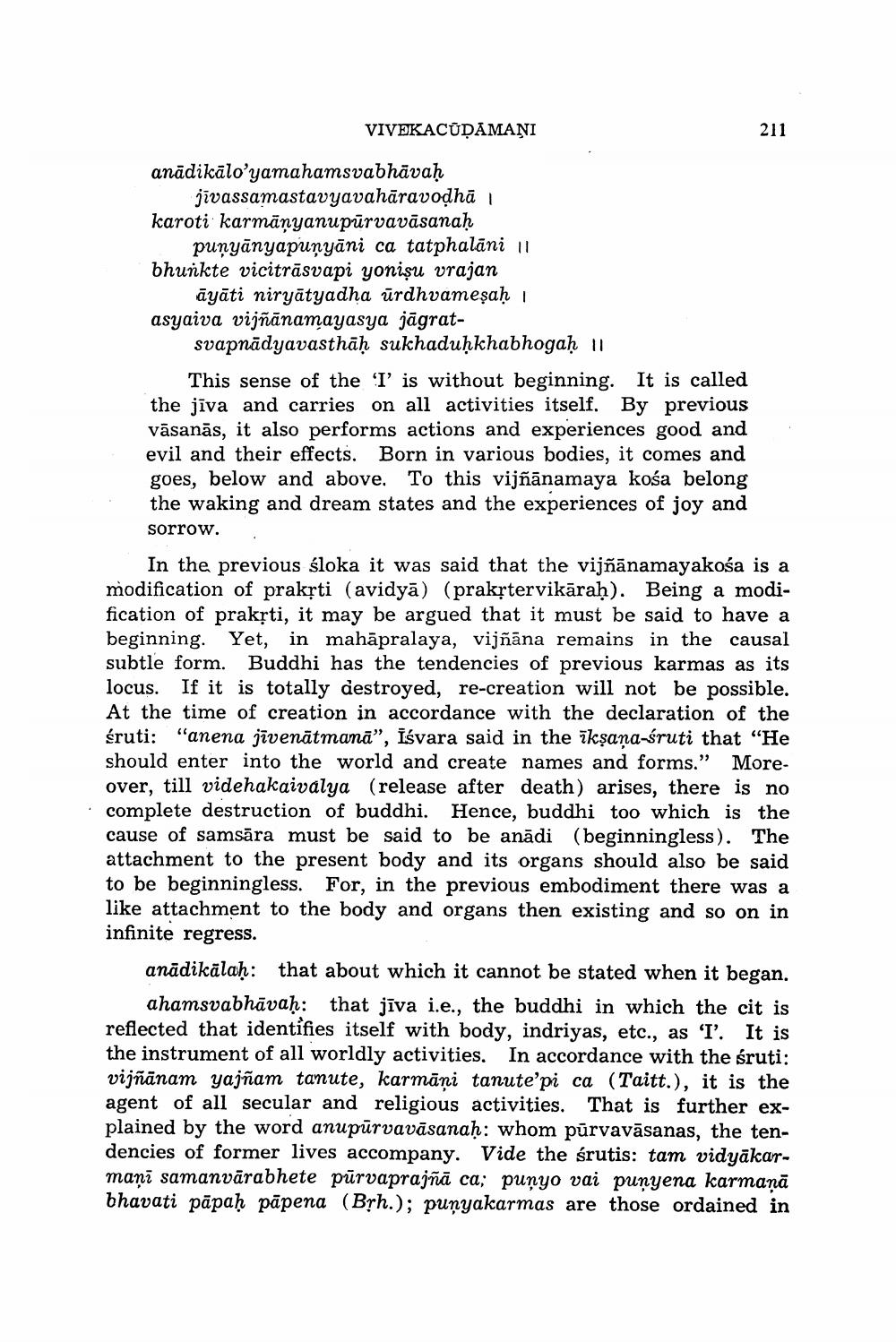________________
VIVEKACŪDAMANI
anadikālo'yamahamsvabhāvaḥ jivassamastavyavahāravoḍhā | karoti karmāṇyanupūrvavāsanaḥ punyanyaрunyani ca tatphalani || bhunkte vicitrasvapi yoniṣu vrajan
āyāti niryātyadha urdhvameṣaḥ asyaiva vijñānamayasya jāgrat
svapnadyavasthāḥ sukhaduḥkhabhogaḥ ||
This sense of the 'I' is without beginning. It is called the jiva and carries on all activities itself. By previous vāsanās, it also performs actions and experiences good and evil and their effects. Born in various bodies, it comes and
goes, below and above. To this vijñānamaya kośa belong the waking and dream states and the experiences of joy and
sorrow.
211
In the previous śloka it was said that the vijñānamayakośa is a modification of prakṛti (avidyā) (prakṛtervikāraḥ). Being a modification of prakṛti, it may be argued that it must be said to have a beginning. Yet, in mahāpralaya, vijñāna remains in the causal subtle form. Buddhi has the tendencies of previous karmas as its locus. If it is totally destroyed, re-creation will not be possible. At the time of creation in accordance with the declaration of the śruti: "anena jīvenātmanā”, Īśvara said in the ikṣaṇa-śruti that "He should enter into the world and create names and forms." Moreover, till videhakaivalya (release after death) arises, there is no complete destruction of buddhi. Hence, buddhi too which is the cause of samsara must be said to be anādi (beginningless). The attachment to the present body and its organs should also be said to be beginningless. For, in the previous embodiment there was a like attachment to the body and organs then existing and so on in infinite regress.
anadikālaḥ: that about which it cannot be stated when it began.
ahamsvabhavaḥ: that jīva i.e., the buddhi in which the cit is reflected that identifies itself with body, indriyas, etc., as 'I'. It is the instrument of all worldly activities. In accordance with the śruti: vijñānam yajñam tanute, karmāņi tanute'pi ca (Taitt.), it is the agent of all secular and religious activities. That is further explained by the word anupurvavāsanaḥ: whom pūrvavāsanas, the tendencies of former lives accompany. Vide the śrutis: tam vidyakarmani samanvārabhete pūrvaprajñā ca; punyo vai punyena karmaṇā bhavati papaḥ pāpena (Brh.); punyakarmas are those ordained in




